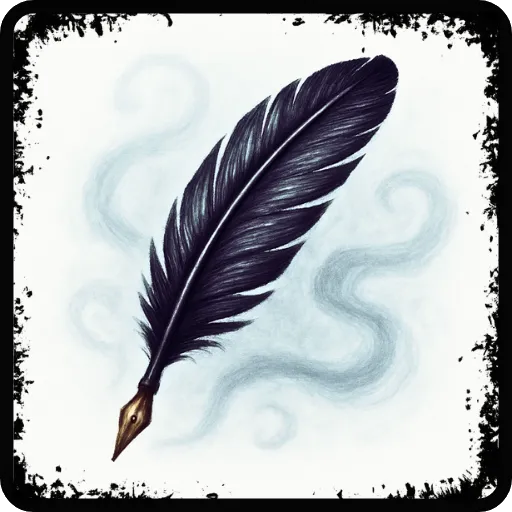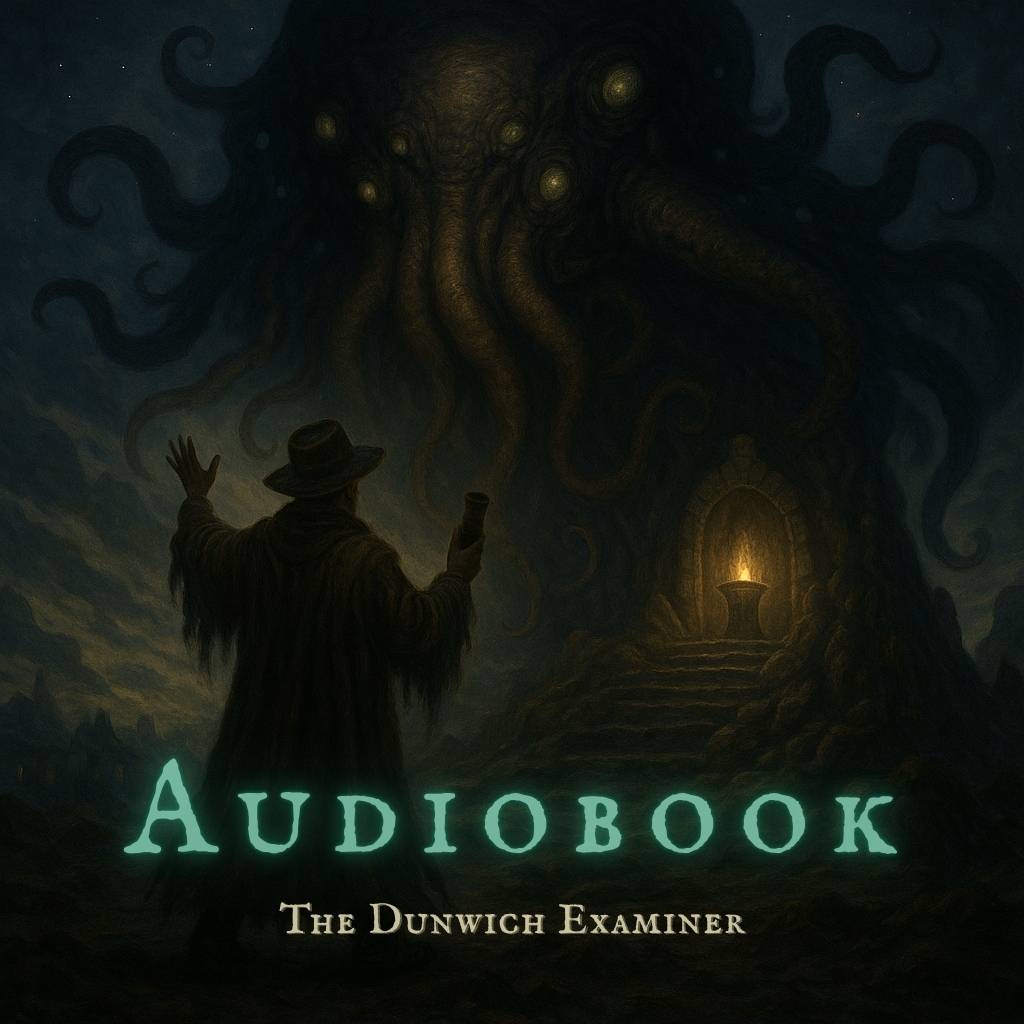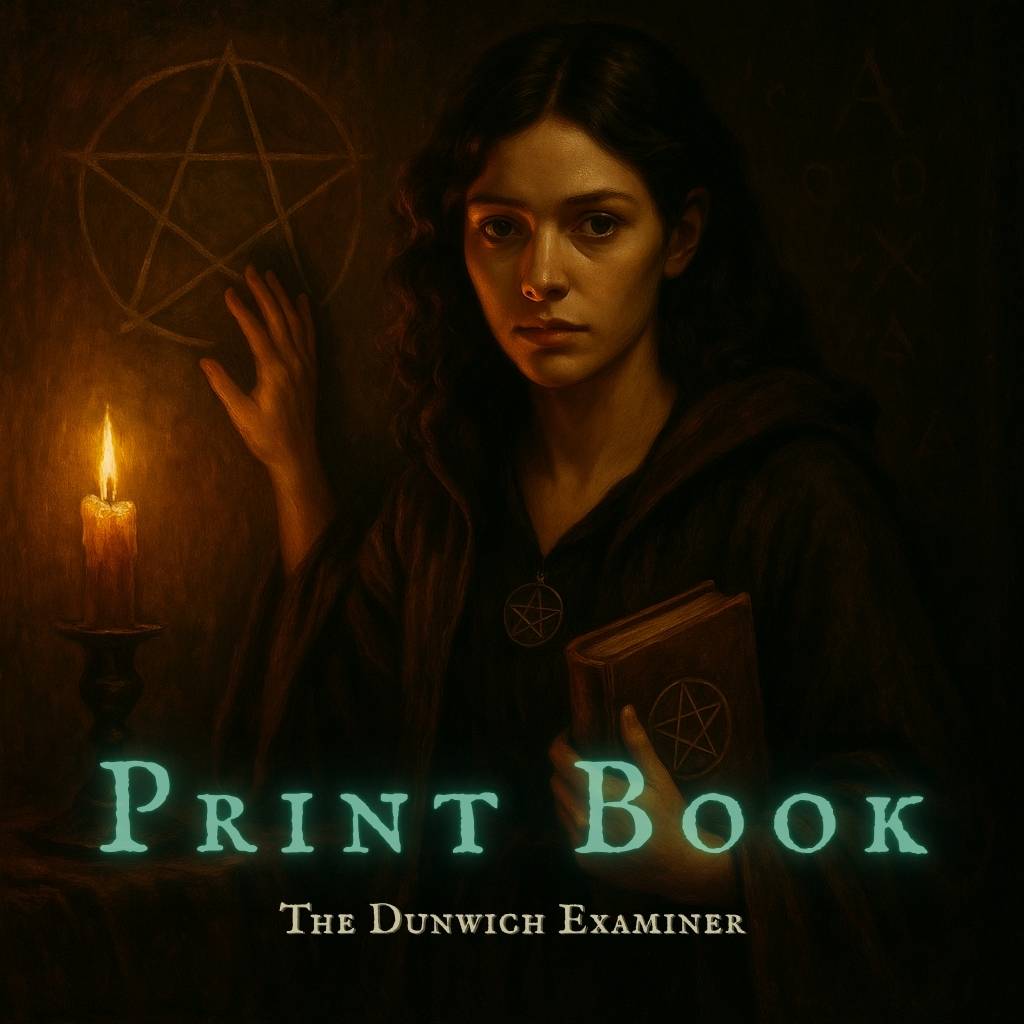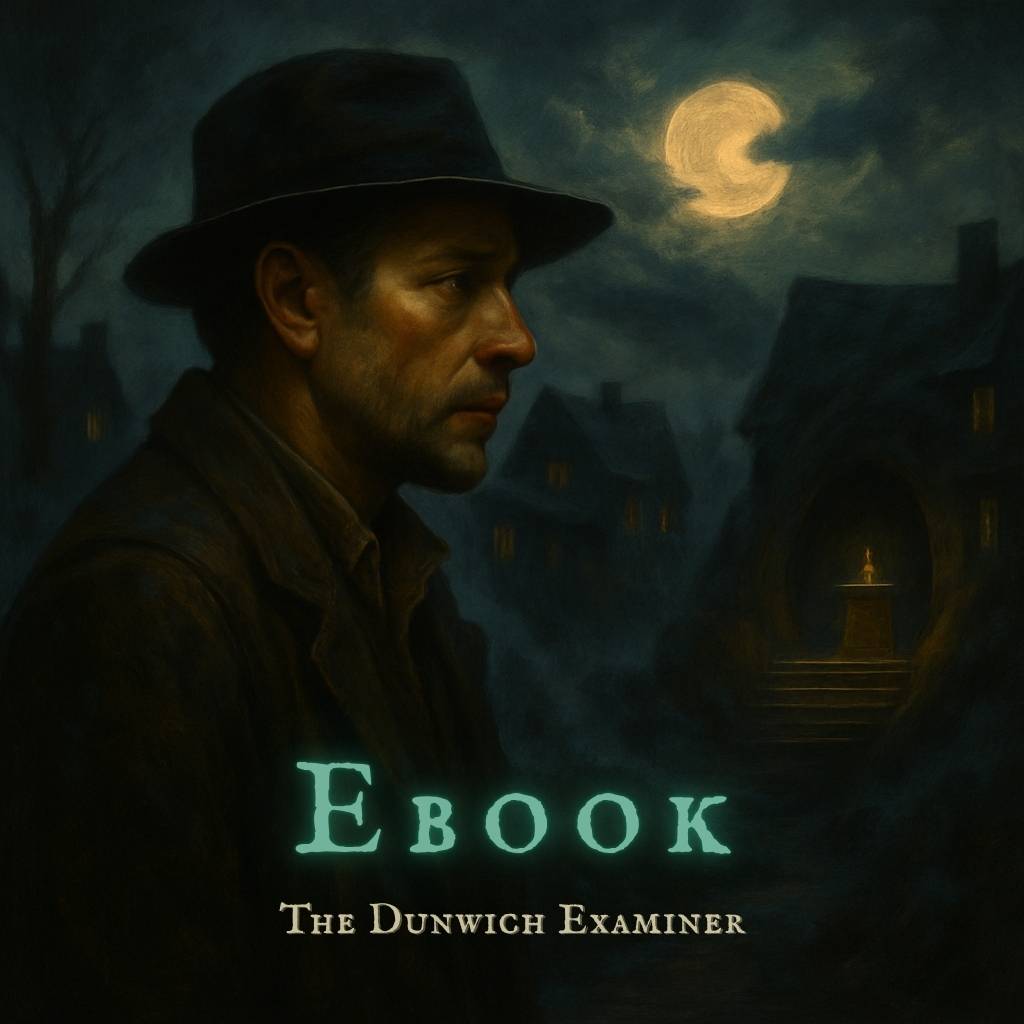Paranormal Investigations
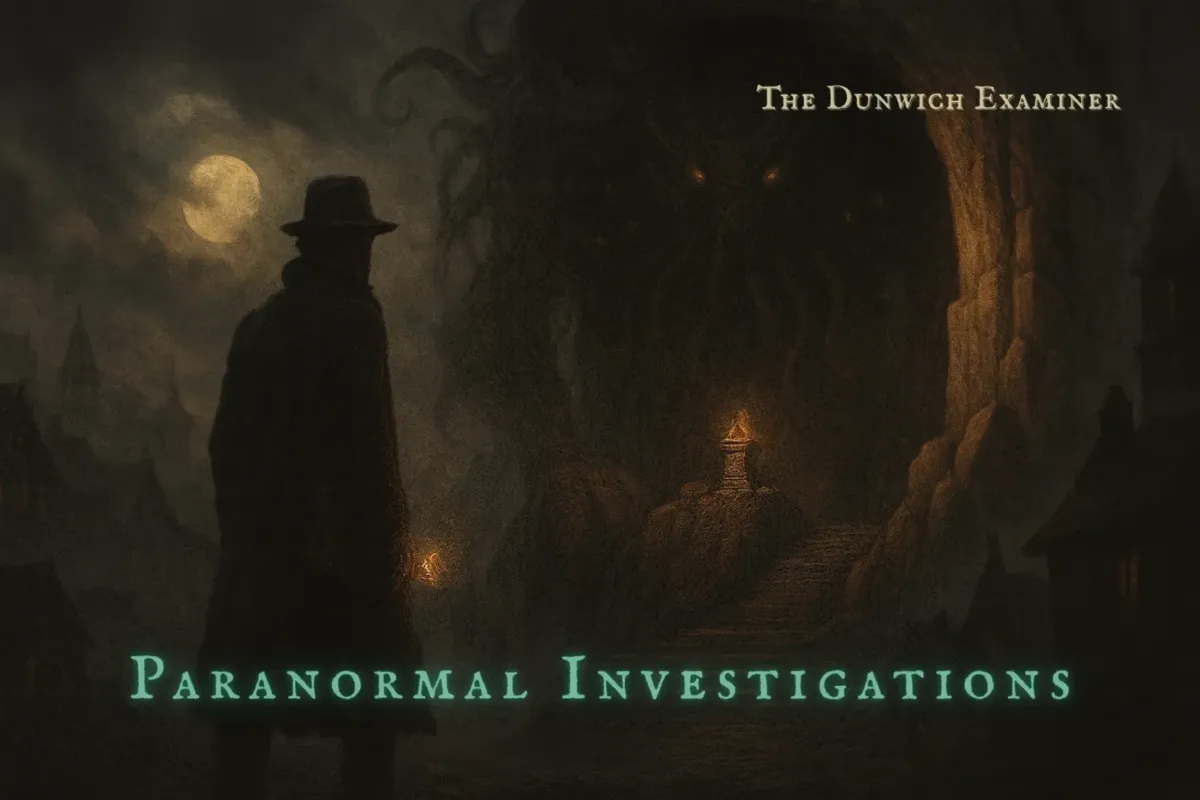
Preface to “The Paranormal Investigations of Nathaniel Crowe”
By Emory Holt, Archivist of The Dunwich Examiner
The following excerpt was taken from the personal notes of Emory Holt, recovered shortly after the initial arrival of the Crowe journals.
I make no claim to heroism. My hands have never shaken at the turn of a lock in some forgotten tomb. I’ve never stood eye to eye with things man was not meant to name. But I have read the journals. I have seen the ink. I have pored over the stains.
And that, dear reader, is burden enough.
For nearly a decade now, I have served as archivist for The Dunwich Examiner, a position that once meant little more than sorting clippings, cataloging letters, and penning the occasional obituary when our staff was thin. Mine was a quiet existence. A contemplative one. I studied old cases and dusty folios, hoping to make sense of patterns long buried beneath bureaucracy or intentionally overlooked.
That changed the day I received a crate marked only with the sigil of Miskatonic University—an outdated crest, mind you, one that hadn’t been in use since the Great Fire of 1911. No return address. No sender’s name. Just a battered wooden box, sealed with pitch and bound in rusted wire.
Inside were journals. Dozens. Bound in cracked leather and vellum, some inked in Latin, others in Greek, and a few in languages I did not recognize. Interleaved among them were letters, sketches, faded photographs, and maps with hand-drawn annotations.
But it was the name scrawled on the inside cover of the first journal that stopped my breath: Nathaniel Crowe.
The Whitcroft Desk Inheritance
It began with a locked drawer. Not one from my own desk, mind you, but one inherited, salvaged from the shuttered backroom of a secondhand bookshop in Arkham, formerly located on Whitcroft Street. The drawer was jammed. Heavy. Lined with velvet that smelled faintly of sea brine and ozone. Beneath it, a false bottom. Beneath that, a bundle of folded papers, scorched along the edges. Notes in a cipher I’d come to recognize far too well. Nathaniel Crowe. His script. His hand. That drawer has never quite closed properly since.
And so began what I now call The Paranormal Investigations, a series of case reports, field documents, recovered testimonies, and journaled encounters that span more than a decade of Nathaniel’s work. Work that stretches far beyond the borders of Arkham and its surrounding counties. Work that pulls at the seams of what we call possible.
Each investigation you will find here has been pieced together from Crowe’s private logs, his ciphered marginalia, and occasionally from the accounts of those who survived what he did not. Some arrive bundled with sketches or coded diagrams. Others include sound recordings, faint and distorted, their origins uncertain. Some documents are too dangerous to publish in full. Others I have reproduced here as faithfully as I am able, with context provided, where it can be safely given.
The Nature of the Investigations
Each volume of The Paranormal Investigations chronicles a single case drawn from Crowe’s recovered journals. Some involve lights that move without source. Others, structures that should not stand by geometry known to man. A few whisper of entities older than language itself.
They are assembled from primary sources: Crowe’s ciphered notes, eyewitness statements, and official records long since sealed. Nothing is embellished. Nothing is softened. Each account is restored for clarity, not comfort.
These investigations are not meant to frighten, they are meant to bear witness.
You may enter the archive however you choose. Each chronicle speaks to the others through hidden correspondences, phrases that recur, symbols that mutate, and absences that seem intentional. Those with an ear for pattern may find connections others overlook.
The chronicles are available both in text and voice. The written form captures the methodical precision of Crowe’s documentation; the narrated editions convey the unease that no ink can hold. However you proceed, be warned: once begun, these accounts have a way of continuing long after they end.
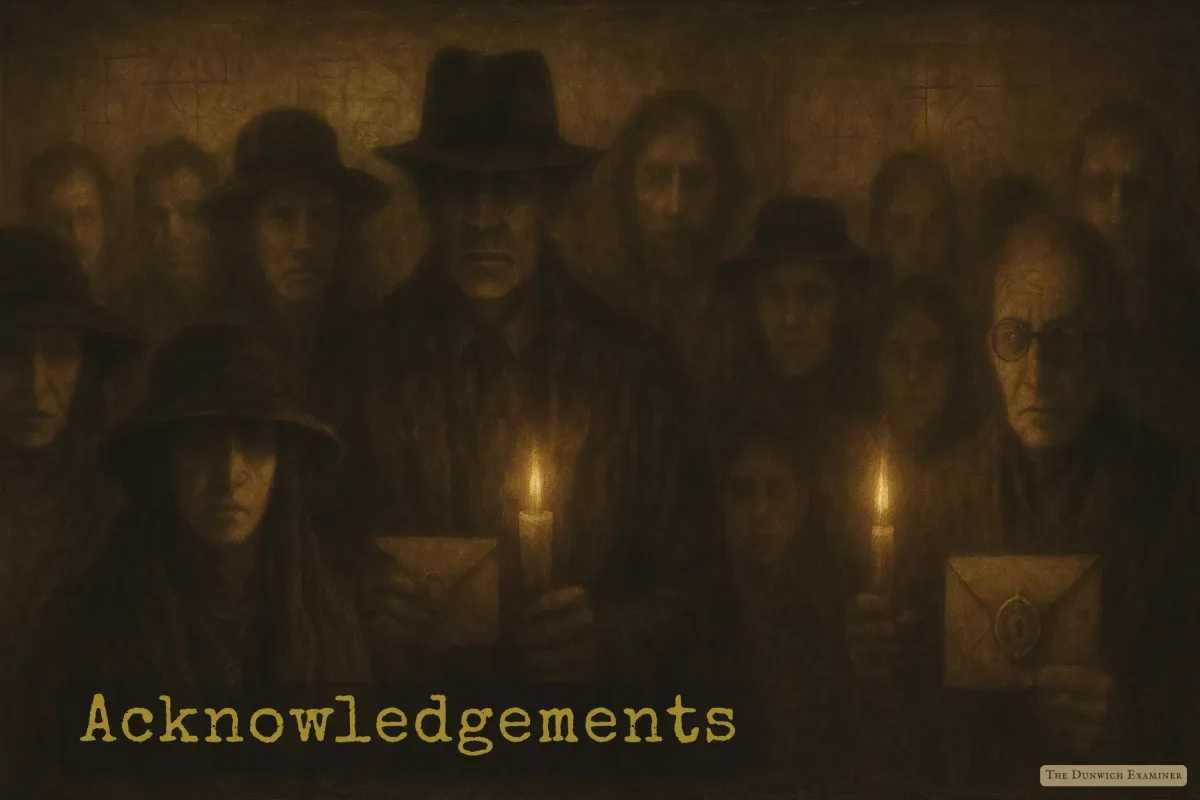
As the appointed custodian of these chronicles, drawn from the frayed, fever-laced journals of Nathaniel Crowe, it falls to me to preserve what ought never have been remembered, and yet must not be lost. These pages are not simply records; they are residues. Echoes etched in salt and ink. They breathe, faintly still, with the weight of what they describe.
My first and deepest acknowledgment is owed to the tenacity, no, the insistence, of Nathaniel Crowe himself, whose mind withstood more than any sane man ought. His descent into those forbidden margins was not a journey of curiosity, but of necessity. That he returned to write at all remains among the lesser miracles in these accounts. That he persisted afterward... an act of defiance against what defies naming.
There are others, too, who have risked more than paper cuts and candle wax burns to see these truths carried forward, individuals who move beneath our world like hidden veins, whispering guidance and shaping the course of Crowe’s inquiry in ways neither he nor I can fully trace. They are scholars, mediums, archivists, and skeptics turned believers. Some left behind fragments. Others left nothing at all. Their anonymity is not a denial of gratitude, but a recognition of the cost they bore. Their silence is earned.
Particular mention must be made of the unknown courier, an agent whose identity has eluded me despite every effort. It is they who deposit each parcel at my door, sealed in oilskin and marked with glyphs unfamiliar even to Miskatonic’s deep vaults. No footfall precedes their arrival. No note accompanies their offerings. Whether man, shade, or the memory of a forgotten function, I acknowledge you. These pages could not reach the waking world without your perilous crossings.
To all who serve the fragile boundary between what is real and what should remain unknown, to those who strain to hold the veil intact even as it tears, I offer a solemn benediction. May your names, though unspoken, remain etched in the margins of every page turned, every map consulted, and every sigil traced in the dust of old places. Your efforts are unseen. But not unnoted.
Why the Records Must Endure
There are truths that rot when hidden. The Dun-wich Examiner exists to prevent that decay.
I publish these investigations so that their patterns might be studied, by those who sense the same tremors beneath ordinary life. The symbols return. The names repeat. Each new account tightens the circle.
If you have found your way here, it may be because the veil has already thinned for you, as it once did for me. Read with discernment. Listen closely. And remember: knowledge is not always salvation.
The Dunwich Examiner releases its investigations as they are made fit for public reading. Every account stands on its own, yet together they trace a rising pattern. If you would like quiet notice when a new investigation is made public, or when new fragments amend an existing file, add your particulars on the Sign Me Up page. Notices are discreet, and never unwelcome.
